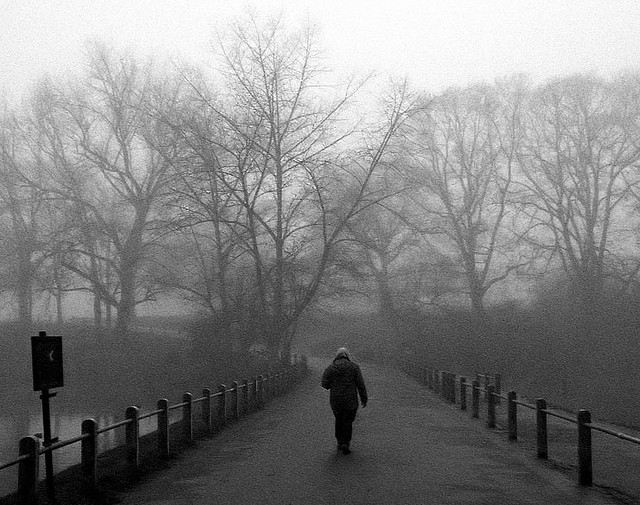Do you ever feel like you’re walking through life with a dark cloud over your head? You’re not alone. Many people suffer from walking depression, which is a type of depression that doesn’t always involve feeling sad. In fact, many people with walking depression feel fine most of the time, but they just don’t feel motivated to do anything. If this sounds like you, read on. In this blog post, we will discuss how to deal with your emotions and get moving.
Contents
What Is Walking Depression?
Depression is portrayed when a person smiles or appears happy. Walking depression, also known as “smiling sadness,” is a type of depressive expression that is commonly hidden or disguised. People who have walking or smiling depression may be able to walk, talk, joke, and otherwise function normally on the outside, but on the inside, they are suffering from internal feelings of sadness.
Many individuals who suffer from walking melancholy do not realize it since they do not fit the “normal” diagnosis criteria. However, because this does not reduce one’s capacity to be treated and recover, getting therapy becomes more difficult. Instead, recognizing that something is out of the ordinary is the first step toward being able to deal with it and recover.
Symptoms
A person with walking depression frequently includes the following symptoms:
- Extreme fatigue
- Difficulty in concentration
- Altered appetite
- Disrupted sleep rhythm
- High sense of insecurity
- A desire for death or inactivity
Major Depression Versus Walking Depression
Walking depression is different from a major type of depression. There exists one big difference. Someone suffering from major depression generally destroys their own life. In major depression, it might be observed through a lack of interest in hygiene or other hygienic habits, an inability to work or go to school, and trouble feeling, recognizing, or expressing any sort of emotion.
Walking depression, on the other hand, is a type of depression that has been hidden, set aside, or neglected. The symptoms are apparent but are suppressed internally and do not show externally. Instead of displaying outwardly negative feelings such as anger, jealousy, or envy toward others, you may feel extremely critical of yourself and experience recurring fury.
You may appear to be functioning, but much of your routine and behavior will be rote, meaning they will not be done with any enthusiasm, passion, or even dedication. They are instead habits that you have adopted and continue to indulge in without any real consideration, effort, or analysis behind them.
Causes 
The causes of walking depression are similarly unknown, as they are with major depression. The precise reasons for major sadness are likewise unknown, just as it’s impossible to say what causes severe melancholy. Depression and mental health, in general, vary so much from person to person that pinpointing specific causes are difficult because these factors differ for each individual. It is clear, however, that all types of depression rely on a mix of elements, including environmental, genetic, and emotional variables. Without the presence of all three, depression isn’t as likely to develop.
What Role Do These Three Variables Play?
The ecological causes of depression are not always linked to the ecosystem (usually), but rather, refer to a person’s circumstances. Someone who does not have a strong family system or lack of assistance is more likely to become depressed at some time in their life.
Individuals who live in high-stress environments, have had negative life experiences, and suffer from high levels of stress are also more likely to become depressed. These incidents might be as simple as losing one’s job or a relationship or the death of a loved one. Any incident that produces trauma or worry has the ability to induce depression.
The gene-based aspects are straightforward. If one of your immediate or extended family has ever had a bout of depression or another mood problem, your risk of developing such a condition is higher. This isn’t to say that everyone who has a relative with a diagnosis will get the same diagnosis; rather, it demonstrates how much genetic history can impact mood as well as mental and emotional health.
Emotional factors are those that examine how you react and respond to situations. People who have a lot of love and support in their lives have a knowledge of how to cope with difficulties effectively. They are at less risk of having any depression. Those that have acquired unhealthy coping techniques, have trouble processing emotional experiences, have been exposed to trauma, or don’t have much social support are more likely to get depressed.
Consequences
Walking depression can be deadly since many people are unaware they have it. Developing the capacity to seek assistance and ask for help is one of the most important phases in receiving mental healthcare. Despite the fact that mental illness still has a stigma associated with it, many people are concerned about or uncomfortable discussing what is troubling them. Depression may cause suicidal thoughts, distressing compulsions, and even frightening ideas, which can all make disclosing them to someone else difficult.
Depression is a difficult condition to deal with, but it’s even more frightening when you’re depressed and alone. It’s just as dangerous as all other depressive disorders: getting treatment might be tough. Walking depression may be particularly tough for some people since it is difficult to detect. Families may have trouble seeing the full consequences of depression on their children or loved ones because they hide so well. Though, walking depression is just as readily treatable as other forms of depression, overcoming it will take time and effort.
How to Treat Walking Depression?
Depression is a treatable condition, and walking depression is no exception. If you have concerns about walking depression, the first step in getting assistance is to see a qualified mental health counselor. You can obtain this by asking for a mental health referral from your primary care doctor, or using our online psychiatry services at home. He may ask you about your symptoms, your past medical history, and your family’s medical history.
Your mental health professional can request that you complete a depression questionnaire such as the Hamilton Depression Scale (Ham-D) or Beck’s Depression Inventory (BDI).
Your healthcare provider may recommend treating your depression with medicine, psychotherapy, and/or changes to your habits and lifestyle if necessary.
Medications
Antidepressants help treat mild to severe depression. These medications boost the amounts of certain natural chemicals called neurotransmitters that directly improve mood and behavior regulation. Selective serotonin reuptake inhibitors (SSRIs) and serotonin-norepinephrine reuptake inhibitors (SNRIs) are two of the most popular antidepressant medicines.
Antidepressants are effective in decreasing the severity of depression symptoms and encouraging recovery, but they don’t work right away. If your consultant prescribes you some medications, it may take two to four weeks for your moods and other symptoms to improve.
Before your moods, thoughts, and feelings start to improve, you may also notice that non-mood symptoms, such as your sleeping patterns and appetite, begin to improve. If you’re taking an antidepressant, follow the instructions precisely. Don’t stop taking your medicine or change the amount without consulting your doctor.
Psychotherapy
Talk therapy, often known as psychotherapy, is one of the most popular types of therapy for depression. It’s frequently used together with medicine to assist you to attain mental mastery over your symptoms and alter how you think in order to reduce the severity of your sadness. Cognitive-behavioral therapy (CBT), Problem-Solving Treatment (PST), and Interpersonal Therapy (IPT) are three types of common psychotherapy for treating depression.
These strategies employ various approaches and methods to assist you in changing your thinking and better managing your depression symptoms.
Therapy is effective, but its effects are not always immediate. You may need to go through several therapy sessions over the course of weeks or months in order to alter your thoughts and acquire new skills for coping with depression’s associated feelings.
Online therapy is also becoming increasingly popular and accessible, with many people turning to it as a way to get treatment. It is equally effective as face-to-face treatment.
You can find many online counseling services that connect clients with licensed mental health professionals. They are capable of assisting you to begin your path to recovery. It makes communication with a therapist easier and more private. Many individuals have trouble getting out and about or may have difficulty keeping commitments. Therefore, online therapy will help such people.
Using a computer, phone, or tablet from the comfort of your sofa to have counseling sessions may be an excellent instrument for overcoming sadness and regaining a life that makes you genuinely happy.
Habits and Lifestyle Changes 
Although a healthy lifestyle isn’t a substitute for medication or therapy, adopting positive changes in your behavior and lifestyle can help you feel better and live a more fulfilling life. The following personal and lifestyle changes may assist you in better controlling your depression:
Open Up With Your loved Ones
One of the difficulties with walking depression is that others may not realize you’re suffering from a mental illness, thus they won’t offer assistance. Don’t be afraid to talk about your feelings with your spouse, a close friend, or a family member if you’re feeling down. Remember that these individuals can act as a network of support when you aren’t at your best.
Don’t Isolate Yourself
If you are sad, you may feel tempted to spend the majority of your time alone. However, limited social contact with others increases stress levels and makes depression and anxiety worse. Try to spend time with others, even if you don’t feel like it. Socializing with friends or family members over a meal, dinner, or simply for the fun of it can help you get into a sociable mood and lower your risk of isolation.
Set Goals To Help You In Healing
Setting simple, attainable objectives can help you chart a course toward recovery by providing you with a practical road map. Set modest and measurable goals. For instance, go one day without having a pessimistic thought. As you advance, modify your objectives to ensure that you’re constantly aiming for a better mental balance.
Do Physical Activities Regularly
Regular physical activity has the ability to boost your mood and enhance your health in a variety of ways. For example, regular physical activity can stimulate the release of endorphins and improve brain function. Try for at least 150 minutes of moderate-intensity activity each week, even if it’s only a quick walk or bike ride. According to the CDC, even little amounts of aerobic exercise can be beneficial to your physical and emotional well-being.
Try Doing Meditation
Mindfulness meditation is a type of meditation that focuses on the present and accepts feelings and sensations without judgment. Various studies show that with the aid of meditation treatment for depression and anxiety becomes much smoother. Set aside 10 to 15 minutes each day to meditate at home, or consider attending a local meditation class near you.
Don’t Be Embarrassed By Your Depression
Depression is quite typical, and being sad does not imply that you are deficient or have done something wrong. Instead of hiding your sadness, recognize that feeling down is a natural component of life. With the right strategy, you can easily overcome it like many other disappointments.
Conclusion
Walking depression is a real thing that you should not ignore at any cost. If you or someone you know is suffering from walking depression, please reach out for help. There are many resources available to assist you in getting the help you need. Don’t avoid it or pretend it’s not happening. It is real but you can overcome it with the proper assistance.
Life is very precious, and walking depression takes away the joy of living. Please get help if you are struggling with this debilitating condition. Don’t snatch defeat from the jaws of victory by walking away from the help you need to get better. You deserve to be happy, regardless of what you may have gone through. You are worth it and can surely do this.
For more information, please contact MantraCare. Depression is a mental illness characterized by persistent feelings of sadness, hopelessness, and loss of interest in daily activities. If you have any queries regarding Online Depression Counseling experienced therapists at MantraCare can help: Book a trial Depression Therapy session









